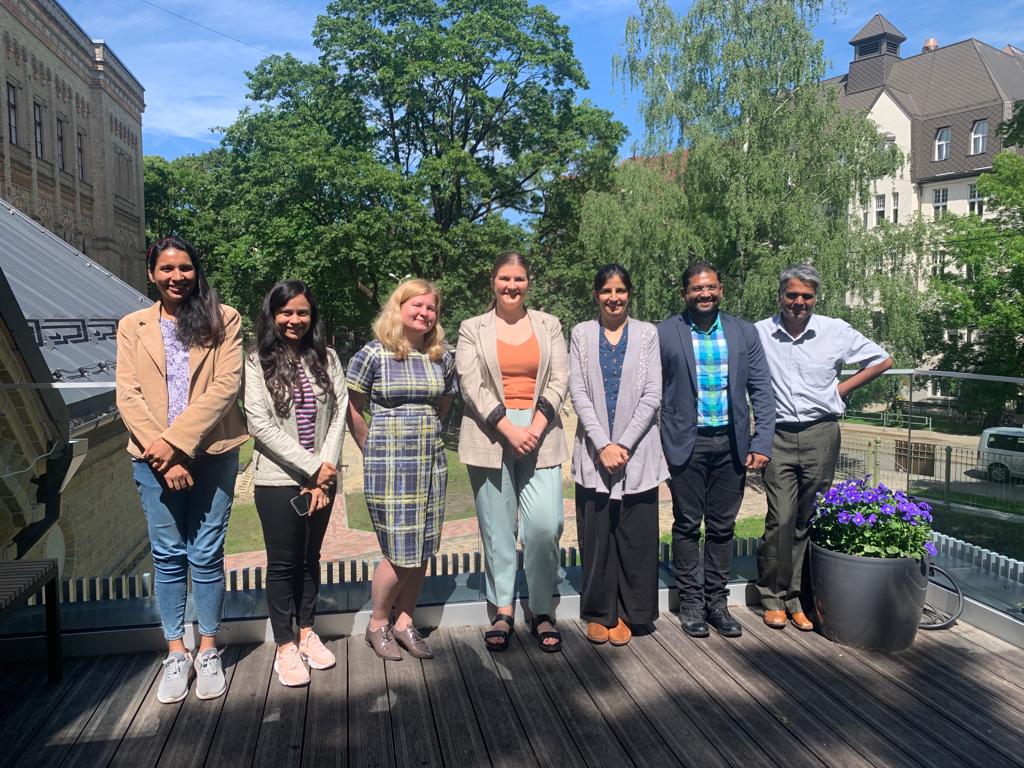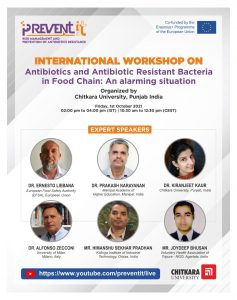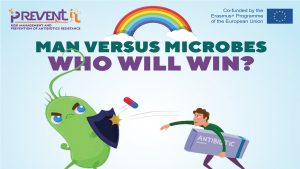The researchers of the PREVENT IT project undertook a three day intensive training at Riga Stradins University, Riga, Latvia from 20th June 2022 to 23rd June 2022. The training was provided by experts from various fields viz. public health, international health, infectious diseases, health policy, and global health.
The Associate researchers were welcomed by Mr. Martin Daugulis and Ms.Elina Vroblevska and visited the Riga Stradins University Anatomy Museum which is a museum with a historical collection with a modern approach. The research associates were guided on the museum’s first teaching collection which was used in anatomy studies in Latvia, from the 1920s to 1930s and has been an integral part of Latvian medical education for 100 years. Further, the researchers got exposed to the “Latvian response to AMR in the last 19 years” where they learned about the systematic analysis of the global burden of bacterial antimicrobial resistance and how antimicrobial surveillance in Europe work. This mechanism was derived from national and regional level problem-solving issues on AMR/ABR from 2003 to 2019 wherein 2019 the National Action Plan for Latvia was formulated. A new operational plan for the next period will be derived following the findings of a National Multi-institutional mixed method study.
The researchers also had a fruitful discussion at the Riga Stradins University with the Director, Department of Health on the PREVENT IT Project and understanding of the health systems of India and Latvia which was followed by an exploration of the possible research area in the field of social anthropology and health. Furthermore, the researchers were guided on a university tour emphasizing its history and practical simulation facilities, International health, self-study pods, and library facilities.
The researchers also got an opportunity to understand “Health and Disease Economics: Economic Aspect of Anti-bacterial and Anti-microbial Resistance”. The session provided a key understanding of health economics with a specific focus on disease economics and how to slow-down circulation has impacted the world during the pandemic. Further, the researchers highlighted the impact of health issues on the economic burden of ABR/AMR and by quantification, the economic aspects and impacts of ABR/AMR can better be understood. Furthermore, the researchers also visited the Riga Stradins University Medical Education Technology Centre (METC) which is the only simulation center with 5 levels of implementation of simulation programs to equip and ensure the acquisition and improvement of skills, as well as hands-on practice for the students at various healthcare sectors with appropriate infrastructure and equipment.
The researchers also got an opportunity to visit Roche, Latvia where the discussion was held mainly on its tasks like promoting the sale of the company’s drugs and diagnostic equipment in Latvia, informing doctors, pharmacists, and government officials about the latest developments and support research-based activities basically on patients record and journey. Finally, the associate researchers visited the Riga Stradins University to attend the technical session on “Innovative Methods in Healthcare Policy” which was focused on problem-solving models, gaps and issues in the problem-solving models, and how innovation method like decision thinking was adopted to derive the solutions to the problem prior to policy implementation. The examples like National Oncology Plan, WHO Digital Health Strategy, and Plan of Narcological Services of Latvia were presented using this decision thinking model. Overall, the training is full of learning and discovering new areas of research, development, and Policy framing procedures in order to combat antibiotic resistance as a collaborative measure.
To access the agenda of the training, please click here!







